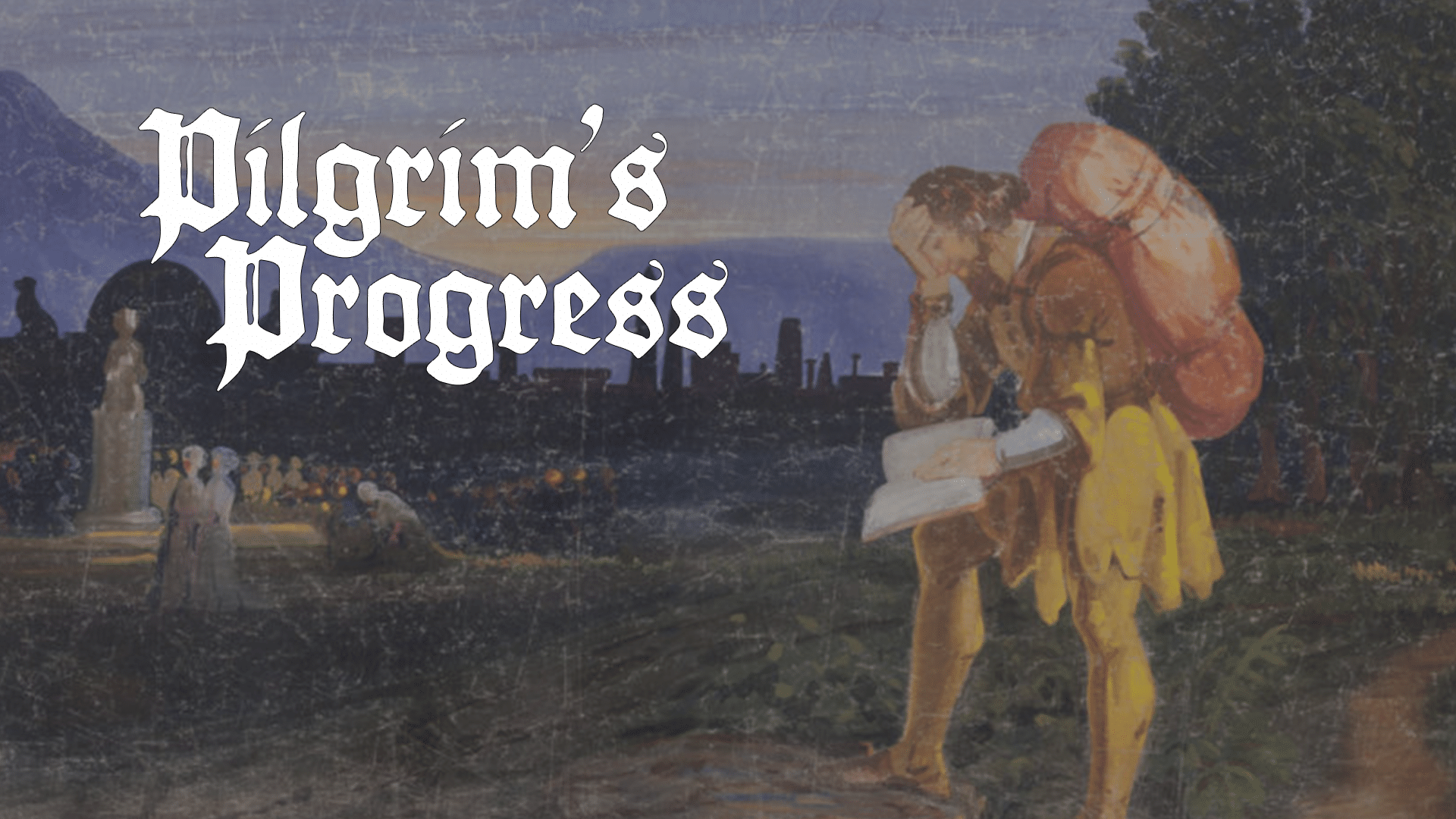John Bunyan was a Puritan, but Puritans came in different sorts. They held differing views of church polity. They also applied their Calvinism in various ways. For example, even though they affirmed justification through faith alone, they also recognized the possibility of a false faith, and this recognition led them into different understandings of assurance.
For most Puritans, eventual assurance of salvation rested upon two elements. The first was a deep struggle with conviction over the guilt of sin. They thought that true Christians would begin by developing a profound sense of how very guilty they were, of how odious God must find them, and of how utterly deserving they were of God’s wrath. Puritans who had not passed through such torment of soul could have no assurance that they were truly trusting God and not self.
The second element in assurance of salvation was perseverance. Those who were truly saved would continue in their faith. This meant not only that they would go on trusting Christ, but also that they would grow in godliness. Consequently, most Puritans subjected themselves to scrupulous self-examination, searching for evidence that sin was being mortified in their members and that holiness was increasing.
The result was what some have called a “Calvinistic Arminianism.” It was Calvinistic insofar as it recognized that salvation is entirely the work of God and rests utterly upon the merits of Christ. It resembled Arminianism, however, in that it robbed many Puritans of the assurance of salvation, for some of them were never quite sure that they were among God’s elect.
Could a Christian experience assurance of salvation? This is the dominant problem that John Bunyan addresses in the beginning of Pilgrim’s Progress. While still living in the City of Destruction, the protagonist Christian has come under the influence of a book (the Bible) that has made him aware that he bears a great burden. This burden symbolizes his conviction of the guilt of sin. He weeps, trembles, and cries out, convinced that destruction is soon to overtake him.
In his distress, Christian is met by Evangelist, who points him to the Wicket Gate. A wicket gate was a small entrance set in a larger one so that individuals could enter without having to open the large gate. Bunyan uses the narrowness of the Wicket Gate as a symbol or emblem for the way of salvation. As a Puritan, Bunyan did not recognize multiple approaches to salvation. He saw only one way, and only those who entered by that way would be saved. In Pilgrim’s Progress, one can only reach the Celestial City by way of the Wicket Gate, so at the advice of Evangelist, Christian sets off toward it.
Along the way he meets Obstinate, who tries to lure him back to the City of Destruction, and Pliable, who agrees to accompany him. Before long, however, Christian and Pliable fall into the Slough of Despond, which represents a moral paralysis that besets those who lose heart under the conviction of sin. Once extricated from the slough, Pliable abandons Christian and returns to the City of Destruction. He symbolizes people who refuse salvation because of difficulty or stigma.
Christian is assisted out of the slough by Help. As he sets off again, he meets Mr. Worldly-wiseman, who tells him of an easier way to get rid of his burden. Worldly-wiseman directs Christian to the town of Morality, to a gentleman named Legality. On the way, however, Christian must pass beneath Mt. Sinai, with all its threatening fire and thunder. Christian cowers there until he is found by Evangelist, who reproves him and sets him back on his way. Through this episode Christian learns that morality and legality only increase one’s condemnation under God’s law.
Eventually Christian comes to the Wicket Gate. There he is admitted by Good-will, who sets him on the way to the Celestial City. The way, he explains, is straight and narrow. Any path that turns away from it will lead him astray.
The Wicket Gate represents salvation. Anyone may knock at this gate, and none are turned away. Later in the story it becomes clear that one must enter the way to the Celestial City only by the Wicket Gate: others who come in from by-paths are still condemned. Passing through the gate represents Christian’s justification.
Nevertheless, his burden is not removed at the gate. Good-will tells Christian, “as to thy burden, be content to bear it, until thou comest to the place of deliverance; for there it will fall from thy back of itself.” So Christian presses forward, stopping for instruction at the Interpreter’s house (of which more anon). From the Interpreter’s house his road, protected on either side by a high wall of Salvation, leads him to a place where stands a cross and a sepulcher. As Christian comes up to the cross, his burden is loosed from his back. It tumbles into the sepulcher and it is never seen again. Then three shining ones appear. One proclaims that Christian’s sins are forgiven, one changes his raiment, and one gives him a roll or scroll (also called a certificate) from which he is supposed to read.
The order of these events indicates Bunyan’s reaction to Puritan views on assurance of salvation. Following the typical Puritan pattern, Christian feels the weight of his sins as an overwhelming burden. His conviction of sin leads him into despondency, and he discovered that morality and legality will deepen his condemnation. All of this was standard Puritan fare: one could not experience assurance until he felt overwhelmed with guilt.
Christian does not receive assurance when he passes through the Wicket Gate. If indeed the gate represents the moment of conversion and justification, Bunyan is still following the usual Puritan pattern. One might be among the elect and yet feel no assurance of that fact. Like Christian, many Puritans continued to feel the burden of their sins after they had trusted Christ for salvation.
Where Bunyan departs from the typical Puritan pattern is in the way that Christian is eventually relieved of his burden. He does not receive assurance by examining his life for perseverance. He receives assurance by coming to the cross. For Bunyan, the finished work of Christ, and not individual spiritual success, was the ground of assurance. Bunyan is taking sides here in a Puritan controversy, aligning himself more closely with the position of Edward Fisher (The Marrow of Modern Divinity) than with mainstream Puritanism.
Subsequently, Christian continues his journey with full assurance of salvation, bolstered by readings from his roll or certificate. Only on one occasion does he lose the roll, and then his progress is blocked until he retraces his steps to recover it. For Bunyan, assurance of salvation was readily available to all believers. It rested upon the objective ground of the cross of Christ. It could be sustained by reading God’s promises in a personal way. Here, Bunyan departed from typical Puritanism.
This essay was originally posted here and is used by permission.




